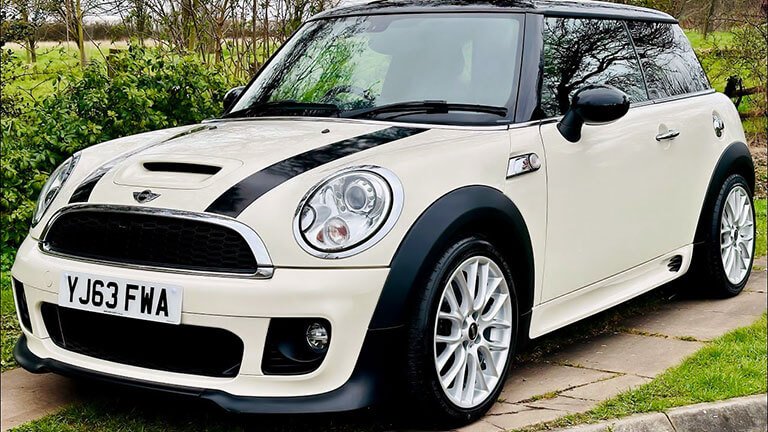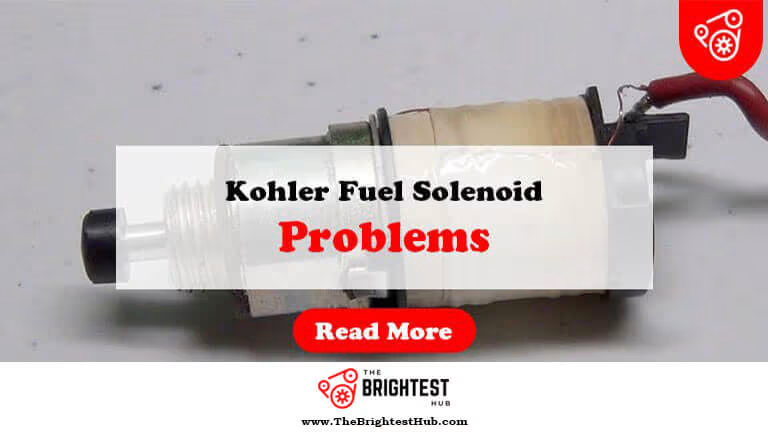Mini Cooper 2013 Problems: Common Issues & Fixes
The 2013 Mini Cooper is known for issues like transmission problems and electrical system failures. Owners often report excessive oil consumption and cooling system leaks.
The 2013 Mini Cooper has garnered attention for its unique style and driving experience, but it also has its share of problems. Many owners love the car’s sporty handling and compact design, making it a favorite in urban settings. Unfortunately, some common issues can impact reliability and performance.
Transmission troubles often plague this model, leading to costly repairs. Electrical glitches can also create headaches for drivers. Moreover, excessive oil consumption raises concerns about engine health. Understanding these problems can help potential buyers make informed decisions. Awareness of these issues ensures you maintain your Mini Cooper in top shape.
Introduction To Mini Cooper 2013 Issues

The Mini Cooper 2013 is a stylish and compact car. It attracts many drivers with its unique design and fun driving experience. However, this model has faced several issues. Understanding these problems is essential for potential buyers and current owners.
Compact Design, Big Problems?
The compact design of the Mini Cooper 2013 looks great. It offers agility and easy parking. Yet, this design comes with some drawbacks:
- Limited space: The rear seat and trunk are small.
- Visibility issues: Small windows can hinder visibility.
- Suspension problems: Some owners report issues with the ride quality.
These compact features can lead to a less comfortable experience for some drivers.
Expectations Vs. Reality
Many buyers expect reliability from the Mini Cooper 2013. Unfortunately, reality tells a different story. Common problems include:
| Issue | Description | Frequency |
|---|---|---|
| Electrical issues | Malfunctions in lights and dashboard. | Common |
| Transmission problems | Shifting issues and delays. | Frequent |
| Oil leaks | Leaks from engine components. | Occasional |
Buyers should be aware of these potential issues. The Mini Cooper 2013 may not meet all expectations. Regular maintenance is vital for keeping this car in good shape.
Transmission Troubles
The 2013 Mini Cooper has reported several transmission issues. These problems can lead to poor performance and driving difficulties. Understanding the signs of failure and possible solutions helps owners manage these issues effectively.
Symptoms Of Failure
- Slipping Gears: The car unexpectedly changes gears.
- Delayed Engagement: The transmission hesitates before moving.
- Unusual Noises: Grinding or whining sounds during gear shifts.
- Warning Lights: Dashboard lights indicate transmission problems.
- Fluid Leaks: Puddles of red or brown fluid under the car.
Solutions And Repairs
Addressing transmission troubles early can prevent major issues. Here are some common solutions:
- Fluid Change: Replace old transmission fluid regularly.
- Software Update: Ensure the transmission software is up-to-date.
- Transmission Flush: Clean the system to remove debris.
- Replace Parts: Change worn-out components like filters or solenoids.
- Professional Help: Consult a mechanic for complex issues.
Maintaining your Mini Cooper’s transmission can enhance its lifespan. Regular checks can save you time and money.
Engine Woes
The 2013 Mini Cooper faces some engine issues. These problems can affect performance and reliability. Understanding these issues helps you make informed decisions.
Common Engine Defects
Many owners report similar engine defects. Here are the most common:
- Oil Leaks: Frequent leaks can lead to low oil levels.
- Overheating: Engine overheating can cause serious damage.
- Timing Chain Issues: Problems with the timing chain can affect engine timing.
- Faulty Fuel Injectors: Malfunctioning injectors reduce fuel efficiency.
| Engine Defect | Symptoms | Potential Fix |
|---|---|---|
| Oil Leaks | Low oil levels, visible oil spots | Replace gaskets or seals |
| Overheating | High temperature gauge, steam | Check coolant levels, replace thermostat |
| Timing Chain Issues | Engine rattling noise, poor performance | Replace timing chain and tensioner |
| Faulty Fuel Injectors | Poor acceleration, rough idling | Clean or replace injectors |
Maintaining Engine Health
Regular maintenance keeps your Mini Cooper’s engine healthy. Follow these tips for optimal performance:
- Check Oil Levels: Regularly inspect and change oil.
- Monitor Coolant: Ensure coolant is at the correct level.
- Inspect Belts: Check for wear and tear on belts.
- Replace Filters: Change air and fuel filters as needed.
- Use Quality Fuel: Always opt for high-quality fuel.
Staying on top of these tasks can prevent major engine problems. A well-maintained engine runs smoothly and lasts longer.
Cooling System Complications
The cooling system in the 2013 Mini Cooper can face several issues. These problems can lead to serious engine damage if not addressed. Understanding these complications helps owners maintain their vehicles better.
Overheating Challenges
Overheating is a common problem in the 2013 Mini Cooper. It can happen due to various reasons:
- Low coolant levels
- Faulty thermostat
- Clogged radiator
- Damaged water pump
If the engine overheats, it may cause:
- Engine damage
- Blown head gasket
- Reduced performance
Watch for these signs of overheating:
- Temperature gauge rising
- Steam from the hood
- Unusual engine noises
Coolant System Maintenance
Regular maintenance is crucial for the coolant system. Here are some important tips:
| Maintenance Task | Frequency |
|---|---|
| Check coolant level | Monthly |
| Inspect hoses | Every 6 months |
| Flush coolant | Every 2 years |
| Replace thermostat | As needed |
Regular checks can prevent major issues. Always use the right type of coolant. Consult the owner’s manual for specific recommendations.
Electrical Enigmas
The 2013 Mini Cooper has many charms. Yet, it has its share of electrical problems. Owners report various glitches that can be frustrating. These issues often stem from wiring, fuses, or software. Understanding these electrical enigmas helps in managing them effectively.
Frequent Electrical Glitches
Many Mini Cooper 2013 owners face common electrical problems. Here are the most reported issues:
- Battery Drain: This can occur due to faulty wiring.
- Malfunctioning Power Windows: Windows may not respond at times.
- Flickering Dashboard Lights: Often linked to battery or fuse issues.
- Faulty Key Fob: Key fob may not unlock doors properly.
- Audio System Failures: Sound may cut out unexpectedly.
These glitches can impact daily driving. Owners often feel frustrated trying to diagnose them. Understanding these issues can help find solutions quickly.
Troubleshooting Tips
Diagnosing electrical issues can seem daunting. Here are some useful troubleshooting tips:
- Check the Battery: Ensure it’s charged and connections are clean.
- Inspect Fuses: A blown fuse can cause many problems.
- Examine Wiring: Look for frayed wires or loose connections.
- Reset the System: Disconnect the battery for a few minutes.
- Consult the Manual: The owner’s manual has helpful information.
Using these tips can simplify troubleshooting. If problems persist, seeking professional help is advisable. Keeping the Mini Cooper in good shape requires awareness of these electrical enigmas.
Steering And Suspension Snags
The 2013 Mini Cooper is known for its fun driving experience. Yet, it has some common issues with its steering and suspension. These problems can affect handling and comfort. Understanding these issues helps owners maintain their vehicle better.
Handling Hiccups
Many drivers report handling problems with the 2013 Mini Cooper. Here are some key issues:
- Loose Steering Wheel: Drivers feel a lack of control.
- Steering Vibration: This can occur at high speeds.
- Difficulty Steering: Some find turning challenging.
These issues often arise from worn-out components. The suspension system may also contribute to these problems.
Upgrading Steering And Suspension
Upgrading the steering and suspension can enhance your Mini Cooper’s performance. Here are some popular options:
| Upgrade Type | Description | Benefits |
|---|---|---|
| Performance Shocks | Improve handling and stability. | Better ride comfort. |
| Adjustable Coilovers | Allow custom height and stiffness. | Enhanced cornering abilities. |
| New Steering Rack | Replaces the old, worn rack. | Improved steering response. |
Consider these upgrades if you experience steering and suspension issues. These solutions can make your driving experience much more enjoyable.
Brake System Breakdown
The brake system in the 2013 Mini Cooper can face issues. Understanding these problems is essential for safety. Many drivers report brake wear over time. Early detection can prevent serious accidents.
Signs Of Brake Wear
- Squeaking or squealing noises when braking.
- Vibrations in the steering wheel during braking.
- Soft or spongy brake pedal feel.
- Warning lights on the dashboard.
- Longer stopping distances than usual.
Recognizing these signs early can save money and improve safety. Don’t ignore unusual sounds or sensations.
Brake Replacement Recommendations
Regular maintenance is vital for the brake system. Here are some tips for brake replacement:
- Check the brake pads every 30,000 miles.
- Inspect the rotors for wear and tear.
- Replace brake fluid every 2 years.
- Choose high-quality brake components for better performance.
Sticking to these recommendations helps maintain safety. Consult a professional if unsure about any repairs.
| Component | Recommended Replacement Interval |
|---|---|
| Brake Pads | Every 30,000 miles |
| Rotors | Every 50,000 miles |
| Brake Fluid | Every 2 years |
Following these intervals ensures the brake system works efficiently. Stay safe on the road by keeping your Mini Cooper’s brakes in top shape.
Interior Issues
The 2013 Mini Cooper has its share of interior problems. Owners report wear and tear that affects comfort and functionality. Let’s explore some common issues and maintenance tips.
Wear And Tear Inside
Wear and tear can impact the driving experience. Here are the main interior issues:
- Seat Damage: Seats may show signs of wear, especially on the edges.
- Dashboard Cracking: The dashboard can crack due to sun exposure.
- Steering Wheel Wear: The steering wheel may feel sticky or rough.
- Interior Trim Peeling: Trim pieces may start to peel or fade.
These problems can reduce the car’s appeal. Regular maintenance helps prevent further damage.
Interior Maintenance Advice
To keep the interior in good shape, follow these tips:
- Regular Cleaning: Clean surfaces weekly to prevent dirt buildup.
- Use Protectants: Apply protectants to seats and dashboard.
- Cover Seats: Use seat covers to prevent wear.
- Monitor Temperature: Avoid leaving the car in extreme heat.
Maintaining the interior ensures a comfortable driving experience. Small efforts can prolong the life of your Mini Cooper’s interior.
Exterior Annoyances
The 2013 Mini Cooper is a stylish car. Yet, it has some exterior problems. These issues can frustrate owners. Let’s explore the common exterior annoyances.
Bodywork Vulnerabilities
The Mini Cooper’s bodywork shows some vulnerabilities. Here are key issues:
- Paint Chips: The paint easily chips, especially on the hood.
- Rust Spots: Some models develop rust around the edges.
- Scratches: The body can scratch easily in tight spaces.
- Plastic Trim Issues: The plastic parts may fade or crack.
These vulnerabilities can impact the car’s look. Regular checks can help maintain its appeal.
Caring For The Exterior
Proper care can reduce exterior annoyances. Follow these tips to keep your Mini Cooper looking great:
- Regular Wash: Wash your car every two weeks.
- Waxing: Wax the exterior every three months.
- Inspect for Damage: Regularly check for chips or scratches.
- Use Quality Products: Invest in good cleaning products.
Taking care of the exterior can prevent serious issues. A clean car also enhances its value.
| Care Tip | Frequency |
|---|---|
| Wash | Every 2 weeks |
| Wax | Every 3 months |
| Inspect | Monthly |
| Use Quality Products | Always |
Following these care tips will keep your Mini looking sharp. Enjoy driving a well-maintained vehicle.
Fuel Economy Frustrations
The 2013 Mini Cooper can leave owners feeling disappointed about fuel economy. Many drivers expected better mileage from such a compact car. Issues with real-world fuel efficiency have become a common topic among owners.
Real-world Mpg Reports
Many owners report lower miles per gallon (MPG) than advertised. The official ratings often do not match what drivers experience.
Here’s a summary of reported MPG:
| Model | City MPG | Highway MPG | Combined MPG |
|---|---|---|---|
| Mini Cooper S | 24 | 32 | 27 |
| Mini Cooper Base | 29 | 37 | 32 |
| Mini Cooper Convertible | 23 | 31 | 26 |
Many drivers find these numbers concerning. Real-world conditions often lead to lower MPG. Factors like driving style and maintenance impact performance.
Improving Fuel Efficiency
Enhancing fuel economy in a 2013 Mini Cooper is possible with some simple steps:
- Regular Maintenance: Keep the engine in top shape.
- Tire Pressure: Check tires often. Proper pressure helps.
- Driving Habits: Avoid rapid acceleration and hard braking.
- Lighten the Load: Remove unnecessary items from the trunk.
Many drivers also suggest using premium fuel. This can sometimes improve engine performance. However, it’s essential to consider costs. Balance fuel choice with your budget.
These tips can help increase your Mini Cooper’s fuel efficiency. Owners can enjoy a better driving experience and save on gas.
Reliability Ratings
The reliability ratings of the 2013 Mini Cooper reveal important insights. Understanding these ratings helps potential buyers make informed decisions. Many owners report varied experiences with their cars.
Owner Reviews
Owner reviews provide valuable real-world insights. Here’s a summary of common feedback:
- Engine Performance: Many owners praise the engine’s power.
- Fuel Efficiency: Drivers appreciate the good gas mileage.
- Handling: The Mini Cooper is often noted for its fun driving experience.
- Interior Quality: Owners love the stylish and compact interior.
However, some issues are frequently mentioned:
- Electrical Problems: Some owners report electrical malfunctions.
- Transmission Issues: A few drivers experience transmission failures.
- Suspension Noises: Odd noises can occur with the suspension system.
Expert Opinions
Experts analyze the reliability ratings of the 2013 Mini Cooper. Many automotive reviewers offer their insights:
| Expert Source | Reliability Rating | Comments |
|---|---|---|
| Consumer Reports | 3 out of 5 | Moderate reliability. Issues reported with electrical systems. |
| J.D. Power | 4 out of 5 | Good reliability, but some transmission concerns. |
| Edmunds | 3.5 out of 5 | Fun to drive, but potential for mechanical problems. |
Experts often highlight the balance between performance and reliability. While the Mini Cooper is fun, owners should be aware of potential issues.
Cost Of Ownership
The cost of owning a 2013 Mini Cooper can vary. Factors like maintenance, insurance, and fuel efficiency play a crucial role. Understanding these costs helps in making informed decisions.
Long-term Expenses
Owning a Mini Cooper isn’t just about the purchase price. Long-term expenses can add up quickly. Below is a breakdown of common costs:
| Expense Type | Estimated Yearly Cost |
|---|---|
| Insurance | $1,200 |
| Maintenance | $600 |
| Fuel | $1,500 |
| Depreciation | $1,800 |
Total estimated yearly expenses can reach around $5,100.
Is It Worth The Investment?
Investing in a 2013 Mini Cooper has pros and cons. Consider these points:
- Fun to Drive: The Mini Cooper offers a thrilling experience.
- Stylish Design: Its unique look stands out on the road.
- Fuel Efficiency: It typically gets good gas mileage.
On the downside:
- Repair Costs: Some repairs can be expensive.
- Space: Limited cargo and passenger space may be a concern.
- Resale Value: Depreciation can affect long-term value.
Deciding if it’s worth the investment requires careful thought. Weigh the fun and style against the costs. Your budget and lifestyle will guide your decision.
Navigating Warranty And Repairs
Owning a 2013 Mini Cooper can be exciting. Understanding warranty coverage and repairs is crucial. Many owners face common problems. Knowing your options can save time and money.
Understanding Your Coverage
Warranties vary based on mileage and previous ownership. Here are key points to know:
- Basic Warranty: Covers defects for 4 years or 50,000 miles.
- Powertrain Warranty: Covers engine and transmission for 4 years or 50,000 miles.
- Corrosion Warranty: Covers rust for 12 years with no mileage limit.
- Roadside Assistance: Available for 4 years or 50,000 miles.
Check your warranty documents. Some issues may not be covered. Look for exclusions related to:
- Normal wear and tear.
- Improper maintenance.
- Accidental damage.
Contact your local dealer for specific questions. Knowing your warranty empowers you.
Seeking Quality Repairs
Finding reliable repair services is essential. Here are tips to ensure quality:
- Certified Mechanics: Choose mechanics certified by Mini Cooper.
- Reviews Matter: Read reviews before selecting a shop.
- Get Quotes: Request multiple quotes for major repairs.
- Ask About Parts: Ensure they use original Mini parts.
Common repairs for the 2013 Mini Cooper include:
| Problem | Typical Repair Cost |
|---|---|
| Electrical Issues | $200 – $1,000 |
| Transmission Problems | $1,500 – $4,000 |
| Suspension Issues | $300 – $1,500 |
Ask for a detailed invoice after repairs. This helps track what was done. Good communication leads to better service.
Preventative Measures
Taking care of your Mini Cooper 2013 can save you money. Preventative measures help avoid major issues. Regular maintenance keeps your car running smoothly.
Regular Check-ups
Schedule regular check-ups for your Mini Cooper. This helps catch problems early. Follow these key maintenance tips:
- Oil Changes: Change oil every 5,000 miles.
- Fluid Levels: Check coolant and brake fluid regularly.
- Tire Inspections: Rotate tires every 6,000 miles.
- Brake Checks: Inspect brakes at least twice a year.
- Battery Maintenance: Test battery every winter.
When To Consult A Professional
Know when to seek professional help. Certain signs indicate serious issues. Look out for these warning signals:
- Unusual Noises: Grinding or squeaking sounds.
- Dashboard Lights: Warning lights that remain on.
- Loss of Power: Sluggish acceleration or stalling.
- Fluid Leaks: Puddles under the car.
- Vibration: Excessive shaking while driving.
Follow these preventative measures. Keep your Mini Cooper in top shape. Regular care ensures a fun and safe driving experience.
Frequently Asked Questions
What Are Common Issues With The 2013 Mini Cooper?
Common issues include electrical problems, transmission failures, and engine stalling, affecting performance and reliability.
How Reliable Is The 2013 Mini Cooper?
The 2013 Mini Cooper has average reliability ratings, with some owners reporting significant issues over time.
What Maintenance Does A 2013 Mini Cooper Need?
Regular oil changes, brake inspections, and tire rotations are essential for maintaining the 2013 Mini Cooper’s performance.
Are There Recalls For The 2013 Mini Cooper?
Yes, there have been several recalls addressing safety and mechanical issues. Check the VIN for specific details.
What Is The Average Lifespan Of A 2013 Mini Cooper?
With proper maintenance, a 2013 Mini Cooper can last around 150,000 to 200,000 miles.
Conclusion
The 2013 Mini Cooper has its share of issues that can impact your driving experience. From electrical problems to engine concerns, being aware is crucial. Regular maintenance and prompt repairs can help mitigate these problems. Stay informed and proactive to keep your Mini Cooper running smoothly for years to come.






